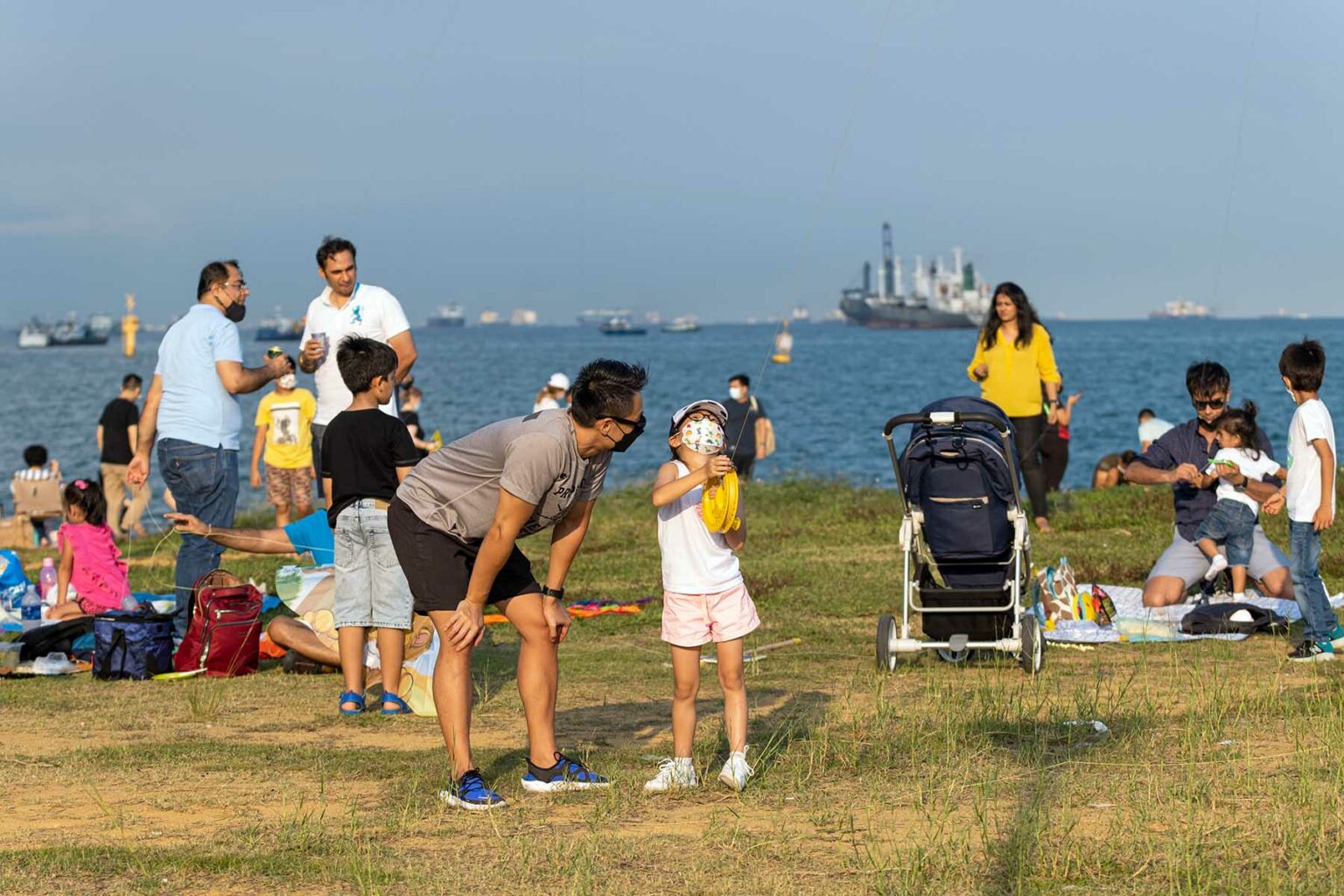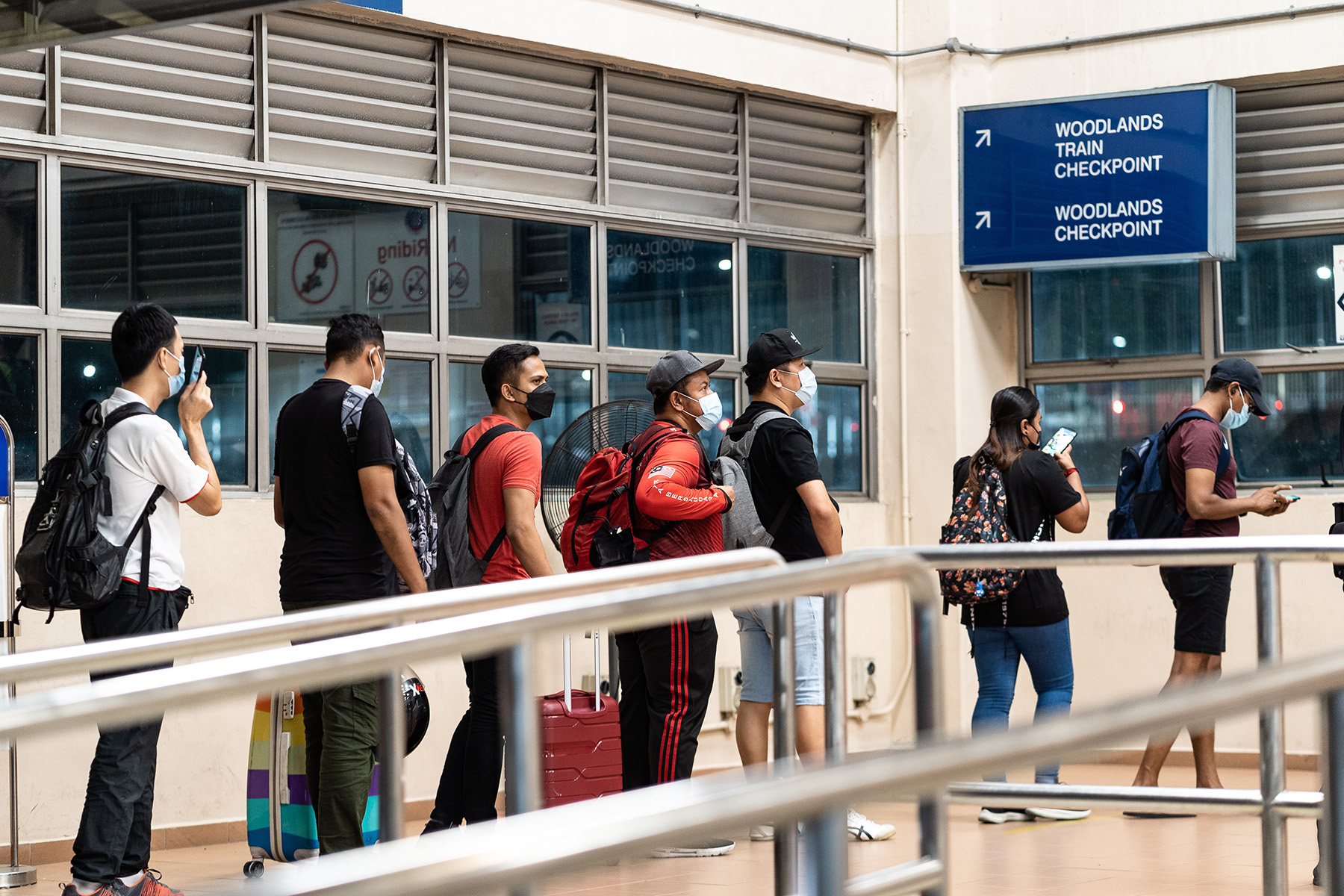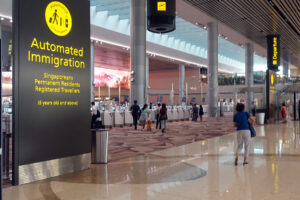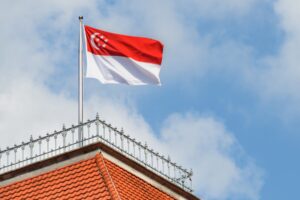If you are an international resident or new citizen in Singapore, you may want your spouse or children to immigrate and live with you long-term. Your family members must secure the appropriate visa to live, work, or study in the country, such as a Dependent’s Pass (DP) or a Long-Term Visit Pass (LTVP), to comply with local immigration laws.
Learn what type of family visa is right for your situation and how to apply by exploring the following topics:
- Overview of family visas in Singapore
- Who can move to Singapore to join family?
- Dependent’s Pass (DP) Singapore
- Long-Term Visit Pass (LTVP) in Singapore
- Short-term visits to family members in Singapore
- Joining family members with a temporary visa
- Joining refugees or asylum seekers in Singapore
- When family members arrive in Singapore
- In the event of divorce or death
- Dependent’s Pass complaints and appeals
- Useful resources
Overview of family visas in Singapore
As of June 2023, Singapore’s foreign population stood at 1.77 million, an increase from the previous year. This can be attributed to foreign employment growth and families joining work pass holders in Singapore.
Families of the following work pass holders can join them in Singapore on a Dependent’s Pass (DP):
- Employment Pass (EP)
- S Pass
- Overseas Networks & Expertise Pass
- EntrePass
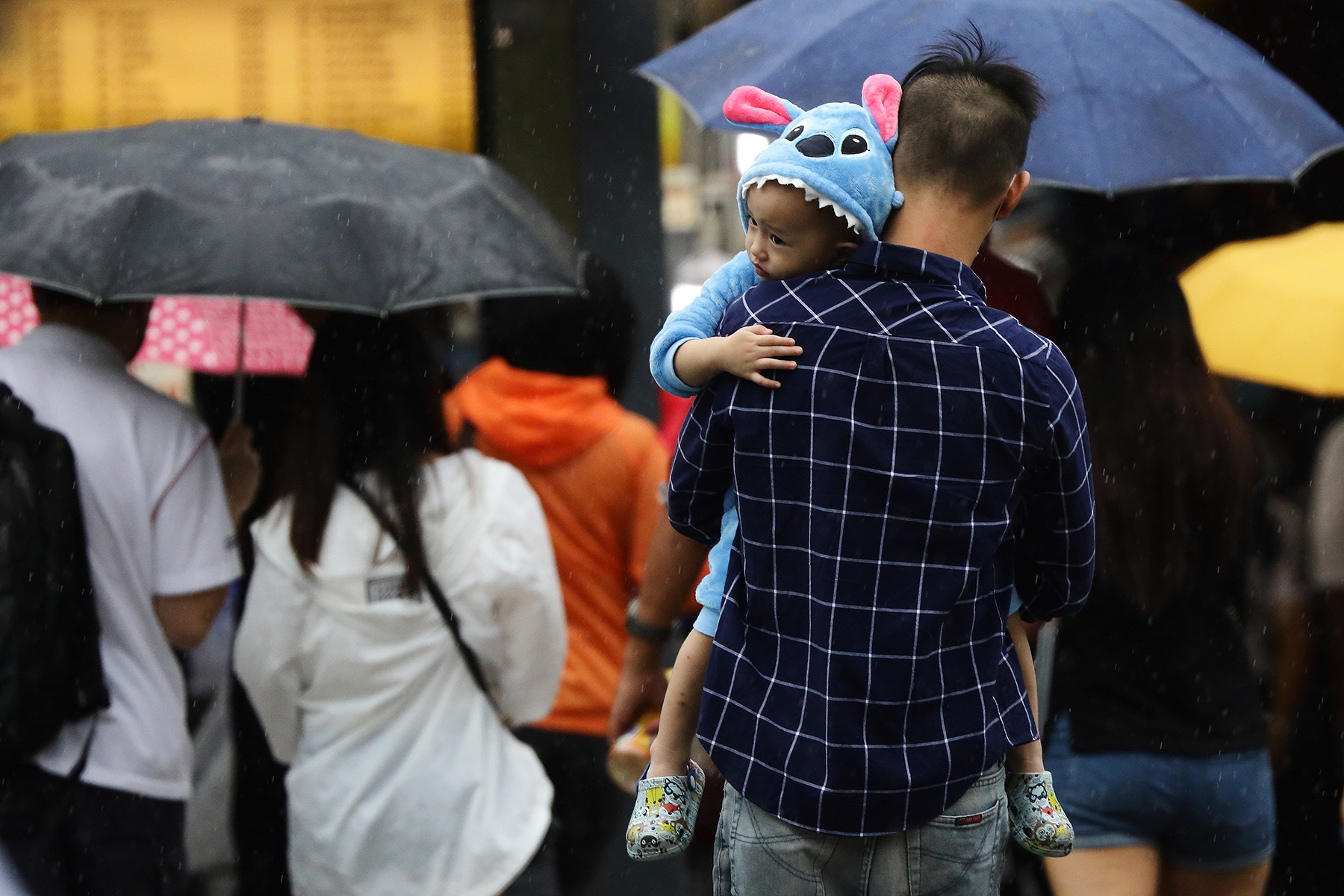
Depending on the situation, Singapore’s Ministry of Manpower (MOM) or the Immigration and Checkpoints Authority (ICA) issues three types of family visas (or passes), namely:
- The Dependent’s Pass (DP): Spouses and dependent children (under 21) of Employment Pass (EP) or S Pass Holders (issued by MOM)
- Long-Term Visit Pass (LTVP): Common-law partners, stepchildren, disabled children, extended family members of EP or S Pass holders (issued by ICA)
- Student’s Pass Dependant Pass (STP-DP): Family members of international students (issued by ICA)
If the family members want to work, they also need a Letter of Consent (LOC) from the Ministry of Manpower to be employed and earn a salary.
Singapore’s family visa policy has clear eligibility criteria and is moderately strict compared to other countries. However, for those meeting the requirements, it is a straightforward process due to the efficiency of the city-state’s immigration authorities. The visas allow many family structures to reunite, allowing members to live, study, and, in some cases, work in the country.
Who can move to Singapore to join family?
Who does not need a Dependent’s Pass or Long-Term Visit Pass?
Eligible family members who obtain an Employment Pass, S Pass, EntrePass, or Work Permit can live and work in Singapore independent of their spouse or parent’s immigration status. Their stay would be tied to their work pass rather than a family visa.
Short-term visitors also do not need a DP to visit family. However, the ICA website lists all the countries where passport holders need a visa (i.e., Short-Term Visit Pass) to enter Singapore. If you hold travel documents from any other nation, you can enter the country visa-free and remain for up to 30 days.

Local expert
Gayatri Bhaumik
However, this does not allow you to establish long-term residence, employment, permanent relocation, or study.
Who needs a Dependent’s Pass or Long-Term Visit Pass?
In Singapore, the following family members of citizens, permanent residents, and eligible work pass holders can apply for a visa to join their sponsor:
- Spouses, including legally married and common-law partners
- Children under 21 years old, including adopted and stepchildren
- Dependent children over 21 with disabilities
- Parents of permanent residents, citizens earning over $12,000 monthly, or student pass holders
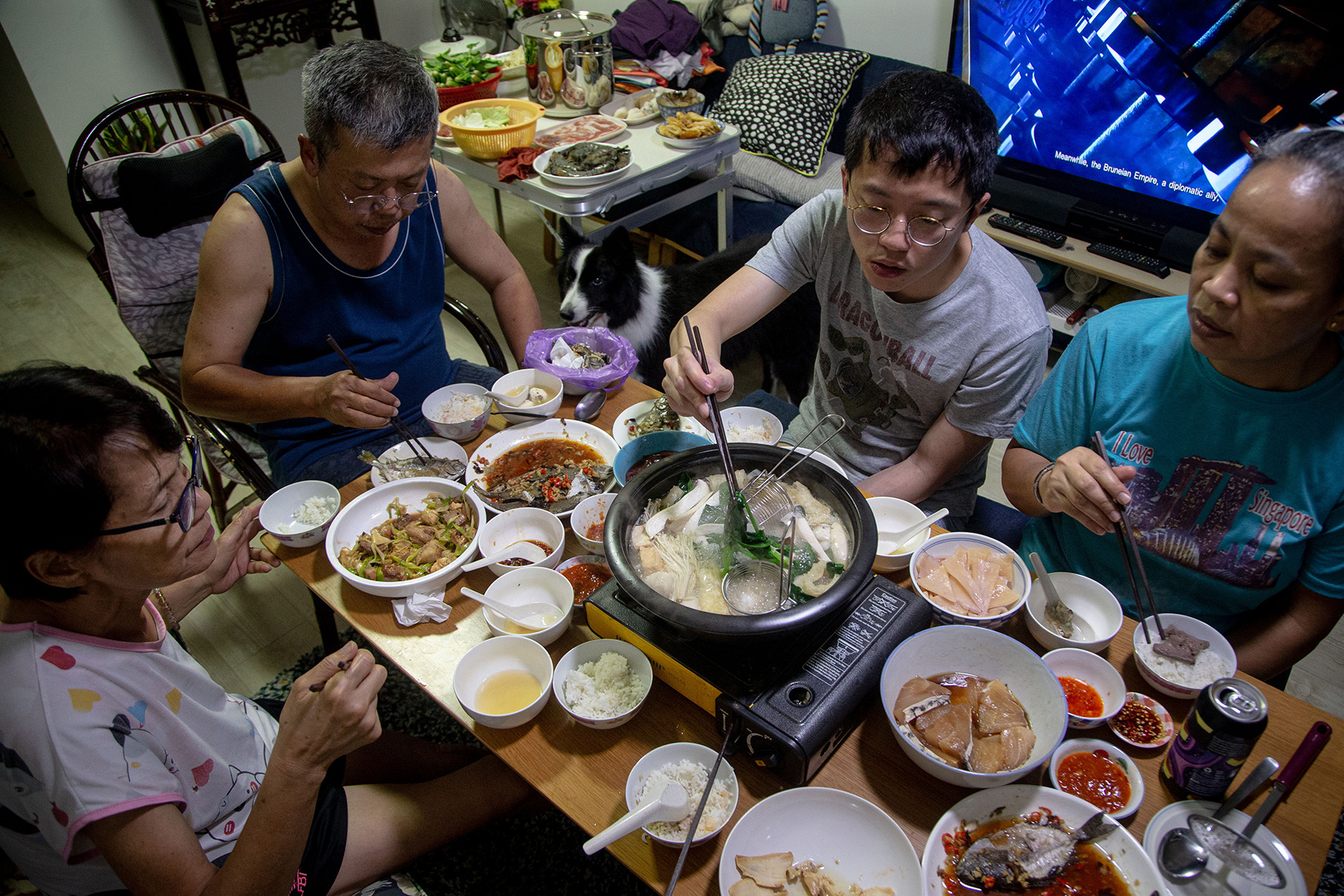
These individuals would need to apply for either a Dependent’s Pass or a Long-Term Visit Pass, submitted by the sponsoring family member or company. Both passes allow the holder to reside legally in Singapore for up to two years.
In addition, obtaining a Letter of Consent enables eligible DP and LTVP holders to work in Singapore if they secure employment. Sponsored family members who later qualify for their own EP, S Pass, or work permit may remain in Singapore under their independent work pass rather than a family visa.
Dependent’s Pass (DP) Singapore
Singapore offers a Dependent’s Pass (DP) that enables family members of work pass holders to legally reside in the country.
Who can apply?
Legally married spouses and unmarried children under 21 (i.e., biological, adopted, and stepchildren) can apply for a Dependent’s Pass in Singapore.
Of course, the work pass holder must meet specific eligibility criteria, as illustrated in the table below:
| Pass Holder | Criteria |
| Employment Pass | Visa should still be valid for six months or longer Earn a minimum fixed monthly salary of S$6,000 EP holders should have a P1, P2, or Q1 pass Sponsored by an established, Singapore-registered company |
| S Pass | Visa should still be valid for six months or longer Earn a minimum fixed monthly salary of S$6,000 Sponsored by an established, Singapore-registered company |
| Overseas Networks & Expertise Pass holders | Visa should still be valid for six months or longer |
| EntrePass (spouse & children) | A minimum annual business spending of S$100,000 Employ at least three full-time employees (LQS) or Employ at least one local manager/executive (PME) |
| EntrePass (parents) | A minimum annual business spending of S$200,000 Employ at least six LQS or Employ at least two local PMEs |
The family applicants would also need to show proof of their COVID-19 vaccination records.
Common-law partners and parents may qualify for the Long-Term Visit Pass (LTVP) instead. Read more in the next section.
Visa length
The Dependent’s Pass is valid for up to two years and tied to the expiry of the accompanying work pass. It can be renewed if the work pass is also renewed.
Visa entitlements
Eligible Dependent’s Pass holders may be able to work in Singapore if they find a job and successfully apply for their own work pass (i.e., EP or S Pass). The Dependent’s Pass waives certain work pass conditions like foreign worker quotas and levies. Those with a Letter of Consent may also work if they find employment.

Additionally, Dependent’s Pass holders can pursue full-time studies in Singapore without needing to apply for a separate Student’s Pass. They can enroll in any school within the duration of their Dependent’s Pass. If their pass expires during their studies, they will need to renew it.
Dependents may access publicly-funded healthcare at subsidized rates. Their medical coverage depends on the work pass holder’s health insurance with private providers.
How to apply
The work pass holder’s company or employment agent submits the online Dependent’s Pass application on their behalf via the Ministry of Manpower’s EP Online portal (myMom).
Required documents include:
- Candidate’s passport
- Marriage certificates or children’s birth certificates
- Vaccination records
Processing takes around three weeks.
Visa costs
It costs S$105 to submit the application and S$225 per pass upon approval.
Long-Term Visit Pass (LTVP) in Singapore
Singapore offers family visas known as Long-Term Visit Passes (LTVP) to enable eligible foreign dependents to join their loved ones residing in the country as citizens, permanent residents, or work pass holders.
Who Can Apply?
Family members eligible to move to Singapore under the LTVP category include:
- Parents, common-law spouses, stepchildren (under 21 and unmarried), biological children with disabilities (unmarried and 21 or above) of eligible Employment Pass, S Pass, Overseas Networks & Expertise Pass, and EntrePass holders
- Foreign spouses of Singapore citizens or permanent residents. Both legal marriages and common-law partnerships are accepted.
- Parents of adult Singapore citizens or permanent residents if the sponsoring child is at least 21 years old. Both biological and adoptive parents qualify.
- Children under 21 years old (by birth or adoption) of Singapore citizens or permanent residents. Both biological and adopted children are eligible.
The work pass holder must meet the following requirements:
| Pass Holder | Requirements |
| Employment Pass or S Pass | Hold a valid visa Earn a minimum fixed salary of S$6,000 Sponsored by an established Singapore-registered company * earn a minimum fixed salary of S$12,000 to bring parents |
| Overseas Networks & Expertise Pass | Hold a valid visa |
| EntrePass (spouse & children) | A minimum annual business spending of S$100,000 Employ at least three full-time employees (LQS) or Employ at least one local manager/executive (PME) |
| EntrePass (parents) | A minimum annual business spending of S$200,000 Employ at least six LQS or Employ at least two local PMEs |
As with the DP, family applicants also need to show proof of their COVID-19 vaccinations.
Visa Length
The LTVP is initially valid for up to two years. As long as the holder continues to meet the original eligibility criteria, they can renew the pass in additional two-year increments.
Visa Entitlements
LTVP holders may be able to work legally in Singapore if they find jobs and their employer sponsors their work pass. However, the Ministry of Manpower does not allow these pass holders to work in adult-industry-related occupations such as dance hostess or masseur roles.

These pass holders can pursue full-time studies at approved institutions without needing to apply for a separate Student’s Pass. However, they cannot take part-time courses. If their LTVP expires during their studies, they will require a Student’s Pass to continue.
Beyond working and study rights, the pass does not entitle holders to benefits like public housing, healthcare subsidies, or education grants.
How to Apply
The qualifying sponsor must submit the Long-Term Visit Pass application on behalf of their foreign dependents using the ICA’s online e-Service system (MyICA).
The application will require supporting documents like:
- Marriage/birth certificates
- Custody papers, if applicable
- Evidence of household income
- Copies of passports
English translations are needed for non-English documents, and you can use a professional service like lingoking.
The ICA generally processes complete applications within six weeks and sends updates on the outcome via email. Alternatively, you can check the application status online via MyICA or the Singpass portal.
Visa Costs
Submitting the online application costs S$30. If the ICA approves the application, additional fees of around S$250 apply to issue the pass formally.
Short-term visits to family members in Singapore
Citizens of countries with visa-free travel to Singapore agreements can enter and stay for up to 30 days under a Short-Term Visit Pass (STVP) as tourists, to visit family, or seek medical treatment.
You can use the ICA’s visit pass validity tool or E-Pass inquiry portal to determine your eligibility.
Visitors who are immediate family members of Singapore citizens or permanent residents can apply online to extend the pass up to 89 days if they wish to stay longer.
You will need the following:
- Valid passport
- Disembarkation/Embarkation (D/E) number from your SG Arrival Card
- A local sponsor if you are from certain countries or seeking an extension beyond 30 days

You have to apply online using the e-Service. However, if the system is offline, you can email ICA a screengrab of the error message, including the following:
- Applicants:
- Full name
- Date of birth
- Passport number
- Foreign Identification Number (FIN)
- Application reference number
- Sponsor:
- National Registration Identity Card (NRIC)
- All contact numbers
The extension costs S$40, and the ICA will process the application within three working days.
Spouses, partners, or dependent children who want to stay in Singapore for longer than 90 can apply for a Dependant Pass or Long-Term Visit Pass. This allows visa holders in Singapore to reside with the sponsoring family member if they are a Singapore citizen, permanent resident, or eligible work pass holder.
Joining family members with a temporary visa
Singapore issues the following temporary visas:
- Training Employment Pass: International professionals doing practical training for three months and earning a minimum of S$3,000/month
- Training Work Permit: Semi-skilled international trainees/students doing a practical training course for six months
- Work Holiday Pass: Students/graduates (18–25) wanting to work and travel for six months
- Work Holiday Pass: Australian students/graduates (18–30) wanting to work and travel for one year
These visa holders cannot sponsor family members to join them as they do not qualify for the DP or LTVP. Their loved ones would need to apply for a Short-Term Visit Pass, which would only grant them up to 30 days. As they cannot access subsidized public healthcare services, it may be a good idea to take out travel insurance like Allianz Assistance.
Joining refugees or asylum seekers in Singapore
Singapore does not have asylum or refugee policies in place and has only allowed a very small number of refugees over the years. The government’s position is that the city-state’s small size prevents it from accepting asylum seekers or refugees.
Supporters argue this policy is necessary to preserve social stability. Critics counter that Singapore, with its strong economy, could still help some vulnerable refugee groups. They also highlight that humanitarian concerns should take priority over politics.
However, Singapore maintains a firm no-refugee stance. It remains unwilling to grant asylum or take in those fleeing conflict. This closed-border policy also means no special family visas are available for relatives to join refugees already in Singapore.
When family members arrive in Singapore
Once family members have entered Singapore on a Dependent’s Pass or Long-Term Visit Pass, they must complete a few steps to formalize their stay.

First, Dependent’s Pass and Long-Term Visit Pass holders will need to check their notification letter to see if they must register their biometrics (e.g., fingerprints and photos). They need to make an appointment at the Employment Pass Services Center (EPSC) to complete this registration within the stipulated timeframe:
- Dependent’s Pass applicants sponsored by Employment Pass holders must register within two weeks
- Dependent’s Pass and Long-Term Visit Pass family members of S Pass holders must register within one week
They should bring the following documentation:
- Original passport
- Appointment letter
- Notification letter for the appointment
After fingerprints, photo, and document verification, the Ministry of Manpower will deliver the pass card within five working days. Family members can easily use the SGWorkPass app to check details related to their pass.
If MOM’s card delivery fails after two attempts, family members must collect the pass card from the EPSC. They should bring their original passport and notification letter to verify their identification.
In the event of divorce or death
In the event of divorce or death of the sponsoring family member, holders of a Dependent’s Pass or Long-Term Visit Pass should immediately contact the MOM or ICA.
The Dependent’s Pass and Long-Term Visit Pass are tied to the sponsoring family member. Therefore, divorce or death typically results in the cancellation of these passes. If you have Singaporean children, the ICA will generally facilitate the renewal of your Long-Term Visit Pass. If you have custody, you can remain in Singapore with your children.
If you do not have children, you must apply for a different visa to remain in Singapore legally. Otherwise, you will usually be required to leave Singapore within 90 days of canceling your existing pass.
Options include applying for your own Employment Pass if you can secure a job. Alternatively, you can try getting sponsorship from another qualifying family member. Consulting an immigration lawyer can help you navigate your options smoothly.
Dependent’s Pass complaints and appeals
In Singapore, if your family visa application is refused or you have a family visa-related problem, you can submit an appeal to the ICA or MOM. You can submit your appeal to the ICA by email. On the other hand, for MOM, you will have to use their e-Service platform.
Visa appeals to ICA usually take 14 working days to process, while MOM resolves complaints within three weeks. Time may vary depending on the complexity of the issue. If unhappy with the outcome, you can submit another appeal providing new information or documents. However, decisions are made on a case-by-case basis.
You can also seek legal advice from an immigration lawyer on further options for disputing the decision. However, the authorities have discretion over immigration matters.
Useful resources
- Ministry of Foreign Affairs (MFA) – official government ministry responsible for conducting diplomatic relations between Singapore and other countries
- Immigration & Checkpoints Authority (ICA) – official website covering different visas and entry requirements for Singapore
- Ministry of Manpower (MOM) – official ministry covering employment passes and work visas, including the Dependant Pass (DP) and Long-Term Visit Pass (LTVP)
